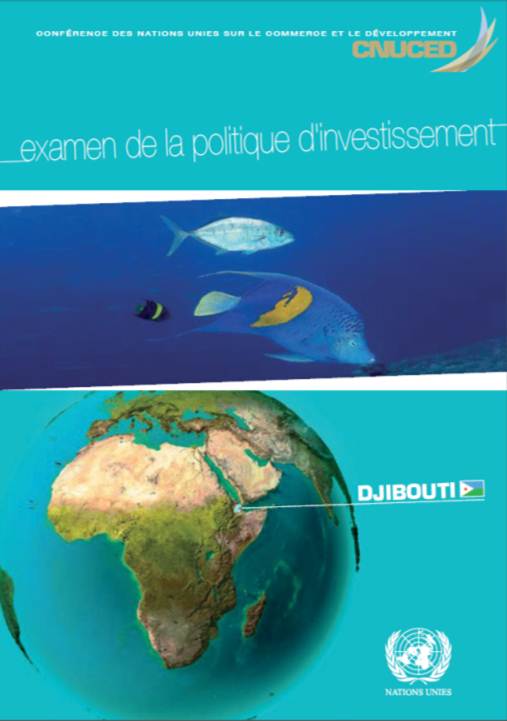Investment Policy Review of Djibouti
Located on the coastline of the Horn of Africa, Djibouti is strategically positioned between Africa, Asia and Europe. Djibouti is also one of the African countries with a longstanding interest in attracting FDI. However, the country faces enormous development challenges, including high levels of poverty and unemployment rates, a low skills base and significant infrastructure constraints.
The IPR of Djibouti identifies a number of weaknesses in the policy, legal, regulatory and institutional frameworks for investment in Djibouti. Taking into account Djibouti's development objectives and the Government's will to improve the investment environment, the IPR proposes remedial actions and puts forward a multidimensional strategy to attract FDI. The strategy is based on the guidelines laid out in UNCTAD's Investment Policy Framework for Sustainable Development (IPFSD). As a first step, the IPR recommends that the Government clarifies its vision on the role investment, and FDI in particular, can play in contributing to Djibouti's development plan.
The strategy proposes an overhaul of the existing investment code to better align it with best practices. The new code should provide clear conditions of entry, establishment and treatment of foreign investors, as well as better guarantees of protection. With regard to the overall business environment, the IPR proposes concrete measures for simplifying the establishment of a business and for making the taxation regime friendlier to small- and medium-sized enterprises. The IPR then puts forward specific recommendations for: a) simplifying land legislation; b) making labour legislation more flexible to meet sectorial needs; c) strengthening the framework for monitoring competition and environmental compliance; d) improving governance; and e) enhancing the competitiveness of human capital and physical infrastructure.
The IPR also offers avenues for the better targeting of investment promotion efforts at sectorial level, including a review of existing fiscal incentives to fine tune their focus and coherence. Regarding the institutional set up, the IPR recommends that the newly established mechanism - the High National Council of Public-Private Dialogue - be operationalized rapidly. The monitoring and evaluation of reforms should be a key priority. The IPR concludes with suggestions for streamlining the existing institutional framework, improving coordination between institutions dealing with investment and strengthening the role of the ANPI.
The report is only available in French
















